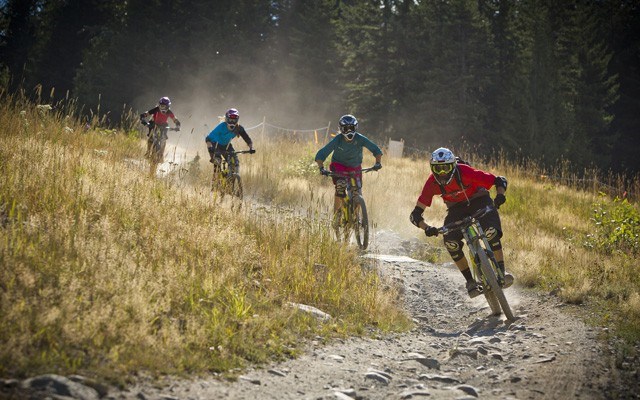Whistler Blackcomb (WB) and WORCA have united their voices to instruct eager trail builders to stop constructing unauthorized trails on Whistler and Blackcomb mountains.
As workers prepare the Whistler Mountain Bike Park for its opening on Friday, May 20, WB vice-president of business development Rob McSkimming said employees have recently seen an uptick in rogue trail-building on the northern side of Blackcomb Mountain in particular. These trails will be decommissioned.
In a May 13 blog post, bike park manager Brian Finestone wrote about how unauthorized trails can affect the park, while WORCA shared a warning to members in its newsletter the next day.
As stewards of the land, WB must ensure any development on the mountain is done properly and sustainably, which is difficult when trails are built without the company's knowledge.
"With our agreement with the province of B.C., we need to be able to let them know what we're doing with the land we're responsible for, so we have worked with them to adopt a whole bunch of trails that were built on our CRA (controlled recreation area) without our knowledge or permission," McSkimming said. "We've been through that process and they've been good about it so we've been able to bring some trails from unauthorized to authorized.
"We have to let the province know what we're doing, making sure that they're onside and from our standpoint, making sure that the trails are built to certain environmental standards, are built in ways that meet our safety concerns and are trails that will be sustainable over the long haul."
McSkimming noted liability issues are also key considerations when riders are on WB property.
While dealing with unauthorized trails doesn't necessarily take heaps of time, McSkimming explained that it means attention is taken away from the bike park and preparations for it.
"Our team is fully engaged in doing what they're doing so any time they take out inspecting, managing, looking at, putting signs up (at unauthorized trials), that sort of thing definitely takes away some time," he said.
WB brought several unauthorized trails into the fold in the summer of 2014, including Khyber, Kashmir, Kush, Ride Don't Slide, BC's, Microclimate, Hey Bud, CrazyTrain and Golden Boner. At that time, McSkimming said the company tried to send the message that those dreaming of constructing something on one of the mountains should receive WB's approval first.
"At the time, we wanted to get the message out that, again, these trails were a challenge and that we worked with the province to figure out a solution," explained McSkimming.
"We were hoping that message would have gone out to trail builders and people would have understood it's good that we're able to make that happen. We hoped that there would be a clear understanding that there would be a process that needs to be in place.
"That's where we could have done a better job and that's one of the reasons that we have been putting the information on our website and had WORCA send out some information on our behalf as well just to try to be more clear and hit a broader audience."
McSkimming said he is still working to solidify the process, but those interested in building a trail on WB property should contact him or Whistler Mountain Bike Park manager Brian Finestone. All proposals will be handled on a case-by-case basis.
WORCA president Craig Mackenzie felt it was important to help WB share its message as the two organizations work closely on several projects annually.
"We partner with them and they allow us access to utilize their trail system for Toonie rides," said Mackenzie.
"We partner with them on Phat Wednesdays. They administer a lot of land in the valley so it's important to work with them as a land controller in Whistler.
"We sent the statement of theirs out to all our members because it's obviously a concern of theirs."
Ultimately, McSkimming hopes the need to decommission the work on Whistler and Blackcomb mountains doesn't crush any trail-building spirits but instead is completed through the proper channels.
"We totally recognize and support volunteer trail-building that happens here and really, all kinds of places all over North America," he said.
"That's the backbone of what's gotten mountain biking where it is today, both here as a premier destination as well as other places.
"We certainly don't want to dampen that enthusiasm in any way. It's an important part of what makes mountain biking great."




